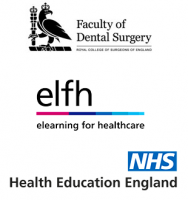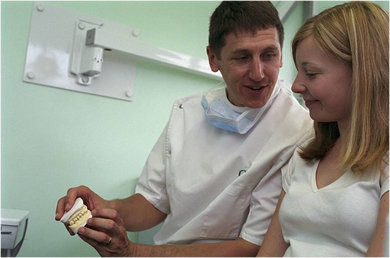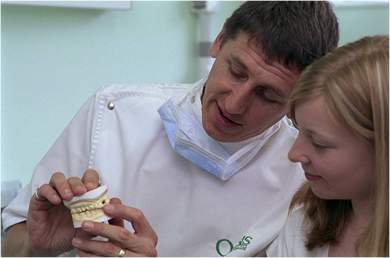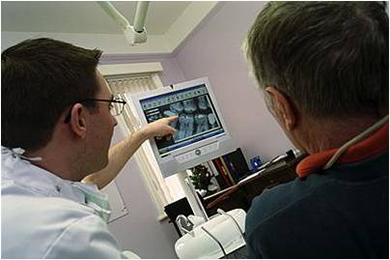Negotiating consent for treatment course for Dental Practitioners



Consent for treatment is a legal requirement involving a detailed explanation of the diagnosis and treatment options. Practitioners must be able to negotiate consent according to the guidance issued by the General Dental Council.
Learning objectives
By the end of this session you will be able to:
- describe best practice in obtaining consent to treatment
- explain why 'information', 'capacity' and 'voluntariness' are key concepts, and how they can be applied
- list the patient communication methods used by practitioners
- describe the key information that should be included on a consent form
- explain the risk of not seeking consent and embarking on complex treatment immediately
Patients have a right to determine what happens to their body. Patients are autonomous individuals and that right must be respected by healthcare professionals.
Before commencing this session you should:
- have completed the e-Den session 1 Patient assessment/Good practice/An introduction to consent
- be familiar with the General Dental Council Standards relating to consent, and the Department of Health 'Reference Guide to Consent for Examination and Treatment'
Stephen is a full time dento-legal adviser for Dental Protection Ltd. He is also a Specialist in Oral Surgery. He qualified in 1984 and worked in fulltime hospital practice until 1989. Between 1989 and 2000, he worked part-time in the Oral and Maxillofacial Unit in Oxford. He had his own practice which he started in 1991, which was a mixture of general and referral practice. He obtained a Masters degree in Medical Law in 2005.
Stephen is also part of the Module Editorial Team at e-Den, and is the Module Editor for Module 10 Communication, and Module 11 Professionalism.

- Medical and Pharmacology | Human diseases and medi...
- Posted By eIntegrity Healthcare e-Learning
- Posted Date: 2024-11-06
- Location:Online
- This session will describe rheumatoid arthritis (RA), systemic lupus erythaematosus (SLE) and Sjögren’s syndrome. It will also identify the medications used for each condition and consider the impact of each condition on dental care.
- Medical and Pharmacology | Human diseases and medi...
- Posted By eIntegrity Healthcare e-Learning
- Posted Date: 2024-11-06
- Location:Online
- This session provides an overview of some of the clinically important respiratory challenges you may come across as a dental practitioner.
- Medical and Pharmacology | Human diseases and medi...
- Posted By eIntegrity Healthcare e-Learning
- Posted Date: 2024-11-06
- Location:Online
- This session describes the signs and symptoms that may manifest in patients diagnosed with common renal problems and the relevance of common renal disorders to the delivery of dental care.
- Medical and Pharmacology | Human diseases and medi...
- Posted By eIntegrity Healthcare e-Learning
- Posted Date: 2024-11-06
- Location:Online
- This session will look at the relevance of common neurological disorders to the delivery of dental care by the dental practitioner.
- Medical and Pharmacology | Human diseases and medi...
- Posted By eIntegrity Healthcare e-Learning
- Posted Date: 2024-11-06
- Location:Online
- This session will look at the signs and symptoms of neurological disorders and how the dental practitioner may recognise them.







